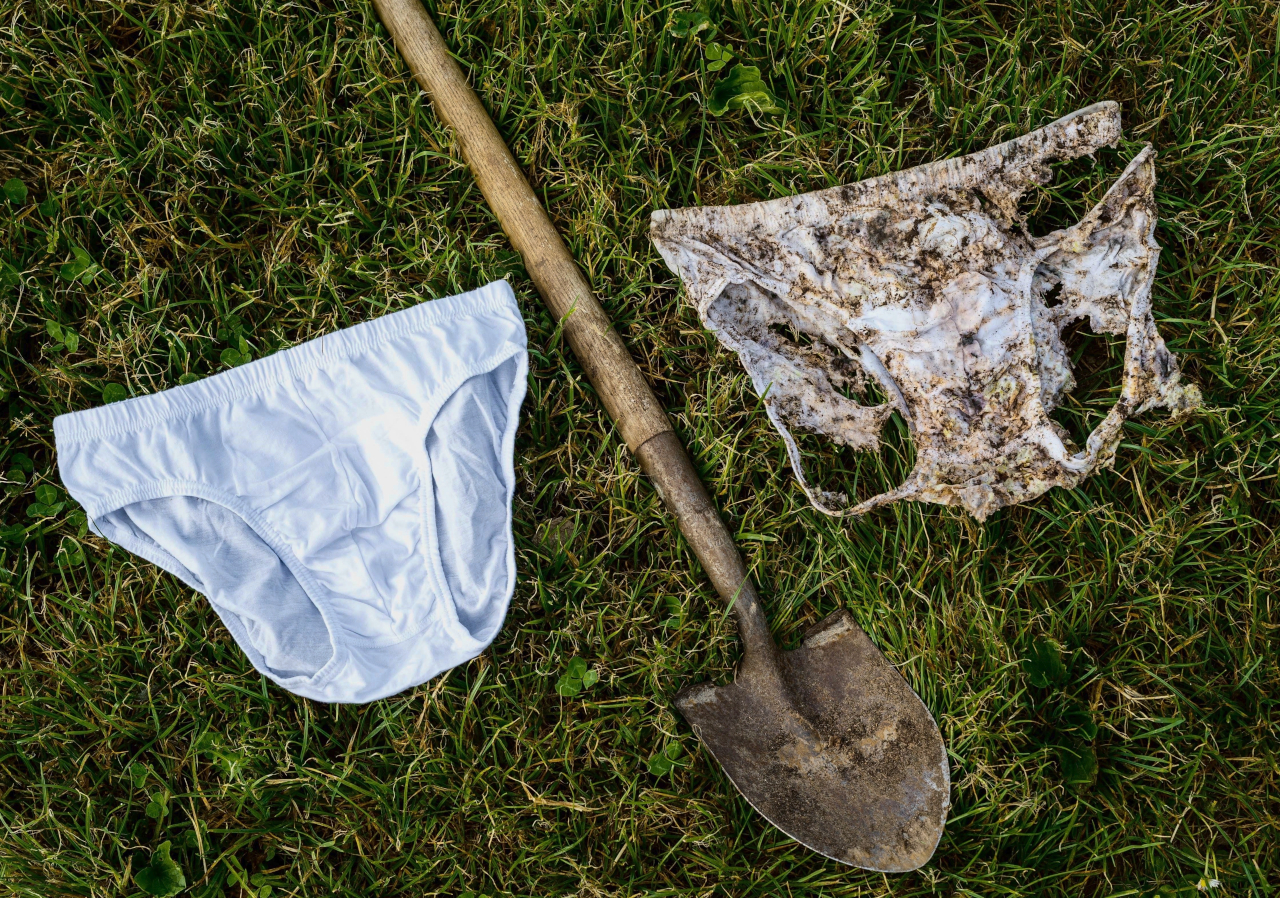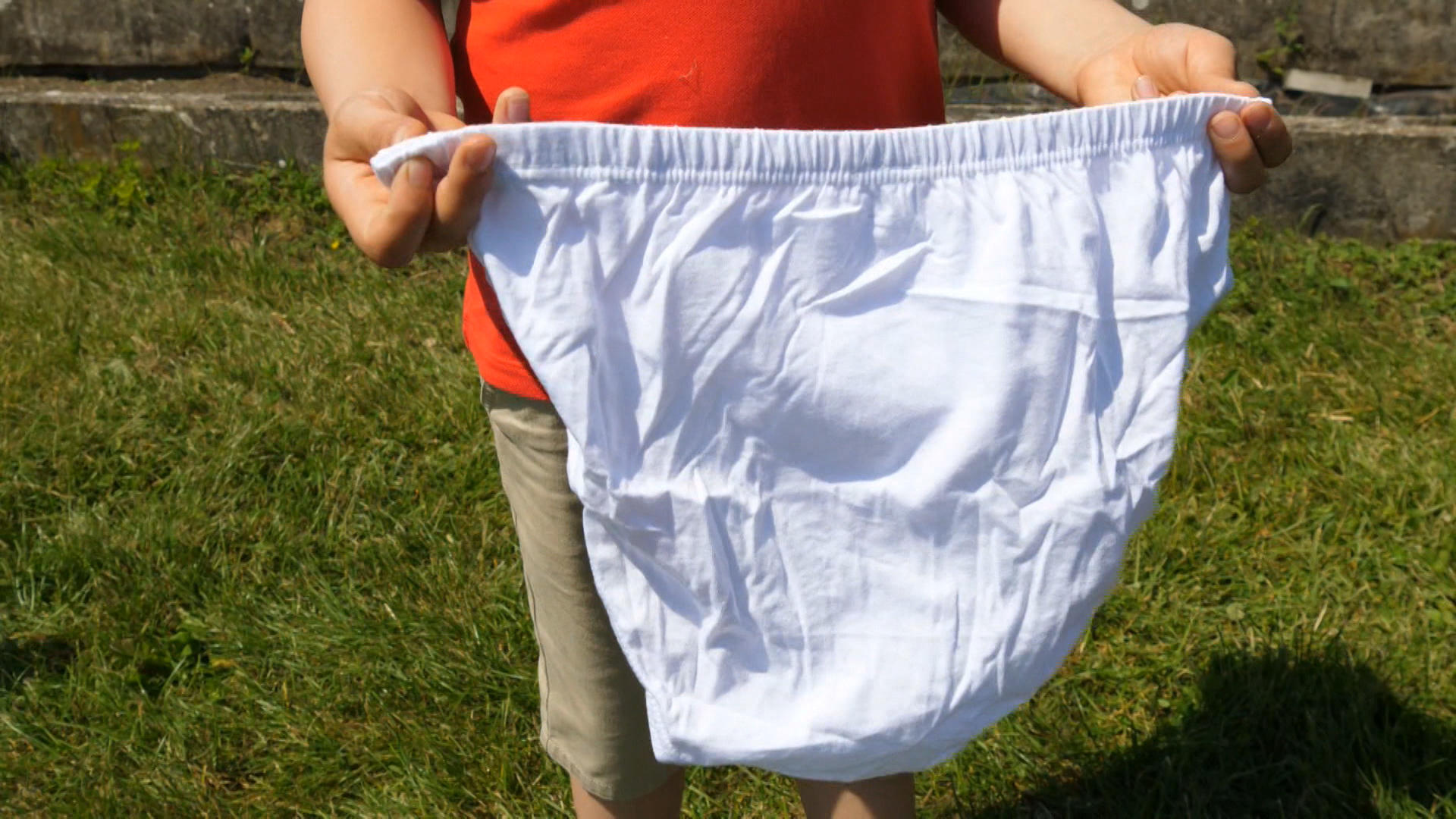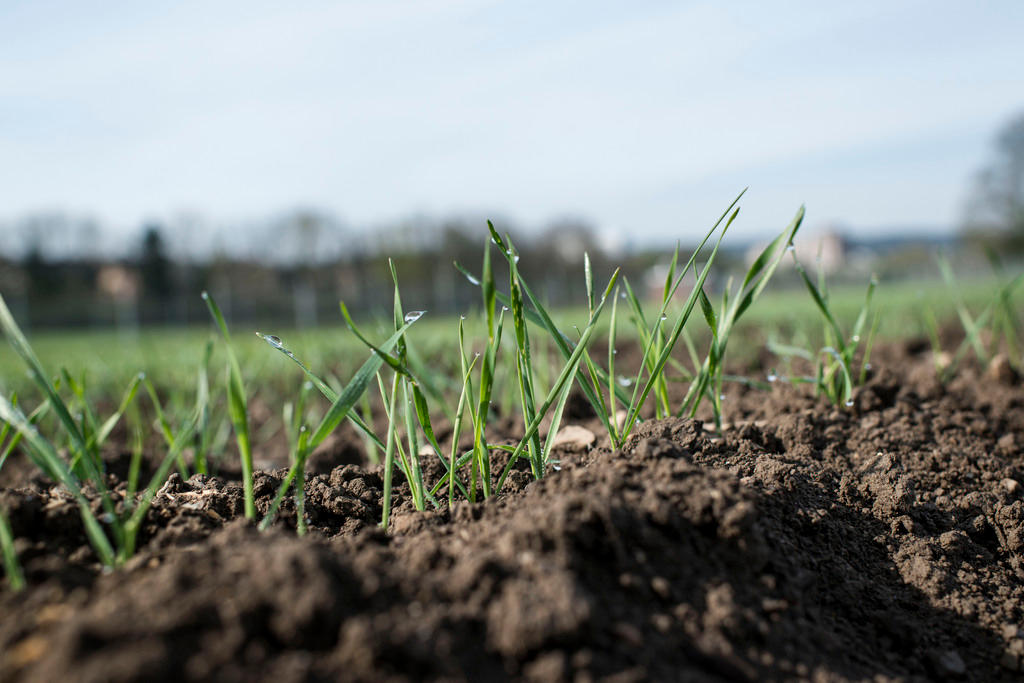
Buried underwear proves good soil in private gardens

In April last year 1,000 volunteers across Switzerland buried 2,000 pairs of cotton pants in gardens, meadows, croplands and fields to measure the quality of Swiss soil. The undies have now been dug up and examined.
The aim of the “Proof by Underpants” project, carried out by agricultural research centre Agroscope and the University of Zurich, was to obtain extensive information on the soil quality of gardens and farms, for the first time with the help of the general population.
Initial results show that humus – the dark organic matter in soil formed by the decomposition of plant and animal matter – plays a key role in the speed of decomposition and hence for soil health, helping it cope better with climate-induced drought.

More
Why Swiss kids are burying their underwear
“The more organic material the soil contains, the more nutrients available to the millions of soil organisms, and the faster the decomposition of the underwear,” said Franz Bender, head of the project, in a statementExternal link on Wednesday.
Private gardens have the highest humus content. “This is primarily due to the increased use of compost. Composting releases valuable nutrients that also serve as food for soil organisms,” he said.
On average, the humus content on farmland is 23% lower than in gardens. Accordingly, the underpants decomposed more slowly there. The study also demonstrated how important humus content is for the soil water balance. “The more humus a soil contained, the more water it was able to store,” Bender added.
Citizen scientists
“If we want to arm the agricultural sector against increasing drought, keep yields high and produce more sustainably, soil humus content is as good a place as any to start,” said Marcel van der Heijden, director of the study at Agroscope and the University of Zurich.
“Humus acts as an engine for the entire food web in the soil, ensuring that the soil ecosystem functions optimally and thus also stores more water,” he added.
Already-known measures for increasing the humus content in soils include a permanent groundcover, reduced tillage, and the application of compost or mulch.
Researchers discovered over 18,900 types of bacteria and 6,500 different fungi – a huge variety of soil organisms, demonstrating that millions of lifeforms populate every cubic centimetre of soil.
“Without the collaboration of citizen scientists we would never have gathered so much data. This is the biggest project of its type in Switzerland to date,” Bender said.

More
Study shows Swiss soils are suffering

In compliance with the JTI standards
More: SWI swissinfo.ch certified by the Journalism Trust Initiative































You can find an overview of ongoing debates with our journalists here . Please join us!
If you want to start a conversation about a topic raised in this article or want to report factual errors, email us at english@swissinfo.ch.